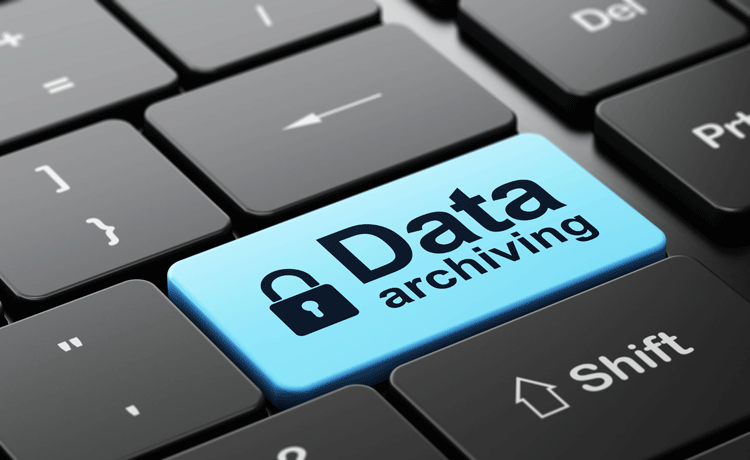Data or information is an important part of every possible business and institution. As an organization starts its journey, the amount of data is usually small and it is not a problem to store these successfully for the first few years. But as the year passes and the organization witnesses’ success, the amount of data also increases. Many institutions and businesses often have sensitive data which must be protected at any cost. Losing such sensitive information might cause the organization issues including the legal ones.
Confidential information regarding a deal or financial information of a client is also a part of such data. These data must be properly stored to make sure that you can actually have access to it whenever necessary. The only successful way to deal with huge lot of data is to archive it. The reasons to archive data are many. This is not only successful but also long-term way of storing data. An archive strategy can help to bring a change in your work front with successful storage of usual as well as sensitive data.
An archive is a place where you store important data which need not to be modified or accessed very frequently. Usually, legacy data is archived by the business organizations. The data that are needed for regulatory standards are also archived. But an archive is different from back up.
Data archive vs. backup
Both of these processes are related to data storage with some difference. The purpose of these two processes is completely different. Data backups are for immediate security. It is a method of using a safeguard for the data that are being used currently. It allows restoring necessary data when lost or corrupted. The data is stored in its present form of existence in the actual file, database or server. It also includes information of location without index. It is necessary to have the knowledge of the whereabouts of the backup to restore the data.
Data archives are sued for data that is not in use at the present time. The data can be retrieved across duration of time. The data is stored in index fashion with the use of metadata. It does not depend on how the data was originally stored. One must know the parameters like file contents, author and origin to retrieve the data. Using backups as archive is never advisable. It becomes tough to choose a specific file for long term storage as a backup is the image of the whole system. Archiving the whole backup needs increased resources and it becomes tough to retrieve a specific file in the future.
Reasons to archive data
Archiving
When data is constantly stored in an application, over time the amount becomes huge. After a certain time, the amount of data will be more than what the application can handle. This will result in issues with the application which might result in loss of data. Archiving reduces the load on the application helping it to work properly, this site has more information.
Data management
It becomes a time-consuming procedure to search and access data when there is overloading issue. Archiving makes it easier to access data as well as protects it for future use.
Protection from accidental deletion
There is always a chance of accidental deletion due to human error. Data management through archiving eliminates this potential threat.
Efficiency
Archiving applications with flexible licencing options offer quite a few options when it comes to data storage. While there is the option of storing data in a different server, you can also choose to store these in your company’s network. This allows better security at lesser prices.
Advantages of Data archiving
Improved efficiency
If you are looking for options that let you get more with less, data archiving will always be on the list. Increased amount of data puts a strain on the system which can be alleviated by the archiving application.
Cost reduction
You can cut on backup and storage cost with a long-term solution for archiving. Making good use of backup system and archiving can reduce overall expense by 60%.
Availability
A simplified archiving strategy can help your business to stay ahead of any change in the technology of archiving.
Things to know
Storage options
Online storage is one of the most popular options of data storage. It enables people to access the data from any location just with a good internet connection. It makes things easier as one can get hands on the necessary files whenever needed and it contributes towards a smooth work experience. Online storage not only makes it easier to retrieve the data but it is also easier to add more data. The only downside is the risk of tampering of data. Private clouds can actually reduce the security risks making it vulnerable to theft and tampering. Public clouds come with built-in support and require ongoing fees.
Offline storage
Archiving data on tape drives or disk reduces the chances of theft or tampering. But it requires more retrieval time than offline storage.
Retrieval requirements
The retrieval time as well as the method of data impacts the business. Some archives take days to retrieve data. This happens especially with offline storage. Some online archives also return collection of data instead of specific parts of files and database. Another thing to consider is transparency. If you have to access the data through a third-party provider or IT staff, it will definitely impact the productivity. When getting an archiving solution, it is necessary to consider all these points properly.













